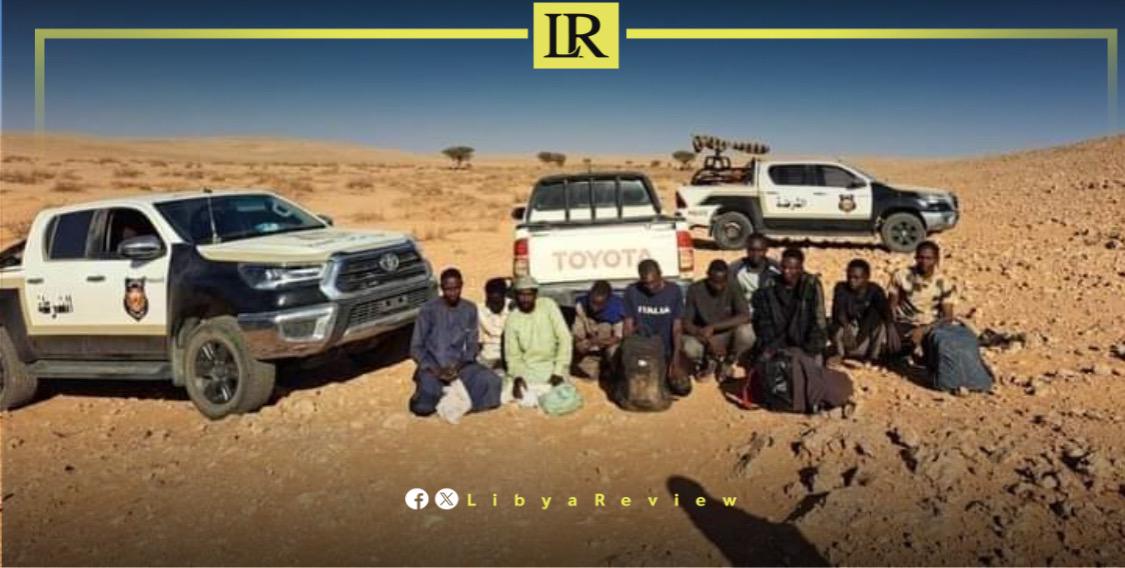The Libyan Ministry of Interior announced that desert border guard patrols arrested 110 illegal migrants from various African nations.
According to the statement, the migrants were stranded in the desert and received necessary medical care before being transported to the Libyan authorities. They will be handed over to the relevant authorities.
This action follows directives from the head of the Border Guard to intensify desert patrol operations in the Hamada al-Hamra region. The aim is to curb and prevent all forms of smuggling activities.
Earlier this month, the UN human rights chief announced that his office is investigating reports of a mass grave in the desert along the Libya-Tunisia border. This follows the discovery of at least 65 migrant bodies at another site earlier this year.
In his speech, Volker Turk condemned the widespread violations against migrants and refugees in Libya, a major transit route through the Sahara Desert and across the southern Mediterranean.
Turk highlighted that abuses against migrants are being committed on a large scale with impunity by both state and non-state actors. He listed crimes such as human trafficking, torture, forced labour, extortion, starvation, detention, and mass expulsions.
Turk urged Libyan authorities to promptly respond to the inquiries and thoroughly investigate these crimes. He addressed these concerns in a speech to the U.N. Human Rights Council in Geneva, focusing on Libya’s human rights record over the past year.
Turk did not provide further details on the suspected identity of the mass grave victims or how the site was found. A spokesperson from his office stated that they have not received information from the authorities but are continuing to follow up on the matter.
In March, the U.N.-affiliated International Organization for Migration reported the discovery of at least 65 migrant bodies at a mass grave site in southwest Libya’s al-Jahriya valley, about 420 km south of Tripoli.


